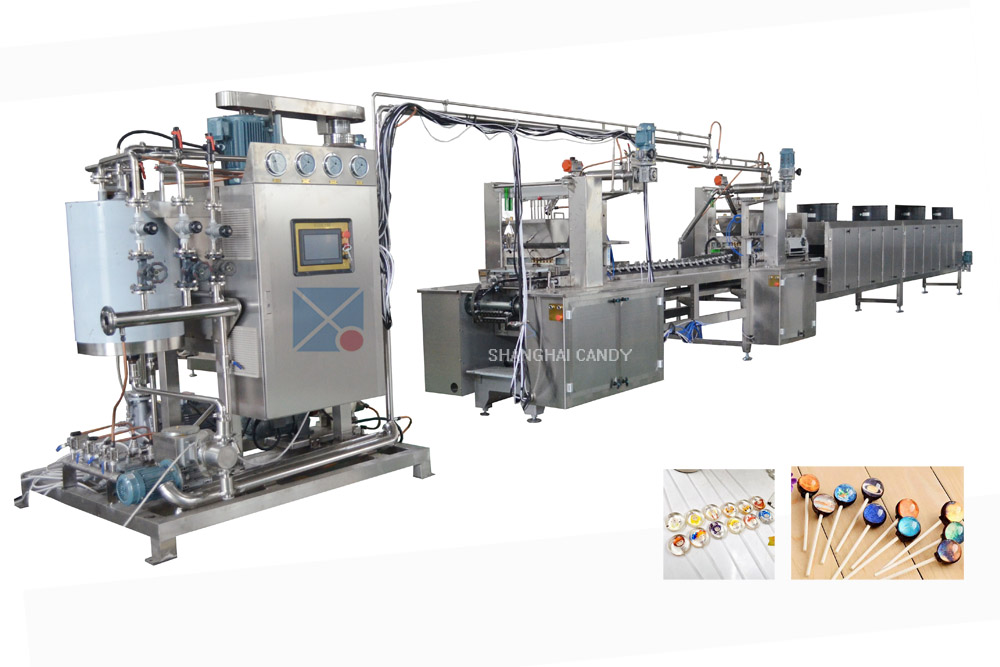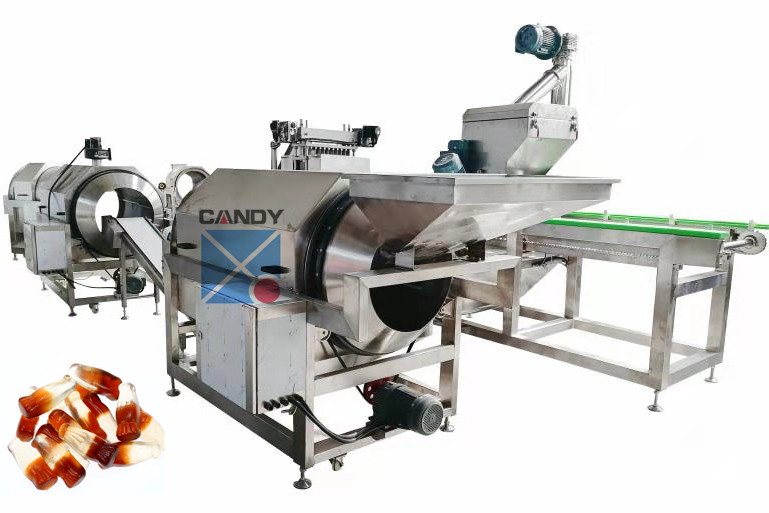The beloved restaurant has expanded its retail options and has plans for a documentary
Baobab Fare is getting into the chocolate-making business. Candy Cooker

After finding success in sourcing the restaurant’s coffee beans from the tiny east African country of Burundi, the restaurant’s newly-formed Soko brand has released a line of single-origin chocolate bars called Shokola, made with cacao sourced from Tanzania.
“[For] coffee and cacao, you have a lot of middlemen before you get your chocolate, or before you get your cup of coffee. I was trying to cut down all those middlemen and pay farmers the right price,” Mamba tells Eater.
It’s all a part of the company’s progression to not only introduce Detroiters to the flavors of Burundi and other African nations, but to also source goods like cacao and coffee beans directly from African farmers. Currently, Baobab Fare’s coffee beans are harvested near the northern Burundi village of Matongo at the Bwayi Washing Station.
During an intimate trade show held Monday at the restaurant, Baobab Fare founders Hamissi Mamba and Nadia Nijimbere were joined by the company’s chief operating officer Hannah Fischer to announce the launch of Soko, which in Swahili means market. Through the Soko website, customers can now place orders from anywhere in the world for coffee beans from Burundi that are roasted and packaged by Clawson-based Sabbath Coffee Roasters, the restaurant’s popular bottled passionfruit juice, Ji, and jars of its spicy Pili sauce, Baobab Fare merch, and handmade jewelry from Rwanda.
Next up for the online shop, as well as at local retailers: chocolate.
Fischer tells Eater that Soko collaborated with chocolatier Rajani Konkipudi, owner of Dwaar Chocolate in Keego Harbor, to produce the dark chocolate bars. According to Konkipudi, Dwaar Chcolate imports raw cocoa beans which are then roasted and ground “the old fashioned way” using stone grinders. She typically sources cocoa beans from small-scale farmers in Honduras or India, however, as part of the collaboration with Soko, she began importing from Kokoa Kamili in Mbingu in Tanzania.
“Kokoa Kamili is more mindful of how they grow,” Konkipudi says. “It’s slave free chocolate, so there is no slave labor or child labor on their farms. Sometimes you hear [about] countries in Africa saying, ‘Well, the socio-economical says pretty much we have to use at some level labor [that] is not acceptable to everybody.’ Kokoa Kamili is doing something different and saying, ‘You don’t always have to use that method, you can always do it in a more sustainable, clean way.”
The chocolate trade has a sordid history, and has been responsible for enslaving millions of Africans to work cacao farms throughout the Americas, Caribbean, and Africa. While reforms have been made more recently, human rights abuses — including slavery and child labor — still persist in the industry.
After hearing about the couple’s ordeal escaping war-torn Burundi as refugees (Nijimbere fled in 2013, followed by Mamba in 2015), Konkipudi says she wanted to get involved with Soko’s chocolate-making ambitions.
“I come from India, too, I’m an immigrant here 30 years now in this country, but [hearing Mamba’s story] brings back the struggles and how it was hard for immigrants. But now what he’s been doing is amazing. So if we can be part of it, and help him do that, it’s like the best thing,” Konkipudi says.
The move into retail is just the latest in Baobab Fare’s expansion efforts. Plans for a second location on the city’s eastside were announced earlier this year and is expected to open sometime in 2024. In December 2022, the company launched a food truck venture called Waka, which serves traditional east African street food. In the coming months, Mamba will return to his native Burundi, accompanied by filmmaker Mark Kurlyandchik, who co-directed the James Beard award-winning documentary Coldwater Kitchen, to develop a documentary based on the couple’s journey from war-torn Burundi to Detroit, and to film the culture of east Africa and its foodways. Fischer tells Eater that she and the team are also exploring the possibility to begin producing school lunch meals for children. In addition, the company began working with Lanovara Food Distributors, a Rochester, New York-based firm to manufacture its retail juice and its Pili hot sauce sold in glass jars.
Mamba tells Eater that he is hopeful that this work will help to empower growers in Africa to recognize the value of the crops they produce and to learn how to connect with businesses abroad that interested in developing an ethically-sourced product.
“This is a movement that we have started,” he says. “We always say at Baobab Fare, if you don’t like [the status quo] bring a solution or a suggestion. If you don’t have a solution or suggestion just shut up your mouth. There’s not room for complaining. The room that we have here is to change things that we don’t like.”
Sign up for our newsletter.
Check your inbox for a welcome email.
Oops. Something went wrong. Please enter a valid email and try again.
Sign up for our newsletter.
Check your inbox for a welcome email.

Toffee Making Machine Oops. Something went wrong. Please enter a valid email and try again.